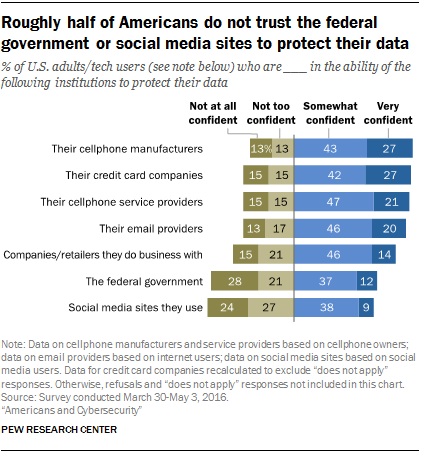The Privacy Paradox: Does Privacy Even Matter?

There is an interesting phenomenon that occurs when people talk about privacy.
It’s called the “privacy paradox” and it essentially says that people are hypocritical when they are discussing how important privacy is to them.
According to this Pew Research article, “The paradox is that people use social media platforms even as they express great concern about the privacy implications of doing so – and the social woes they encounter.”
In short, this means in the battle between privacy and ease-of-use, privacy will lose every time, but customers will still profess their belief in the value of privacy.
What Causes People To Act This Way?
Lets think about how this could happen: how does someone on speak privacy with their lips, yet give up their privacy with their actions?
According to this author, it seems that people have a general concern and understanding about privacy; that their data is now a commodity trafficked by governments and corporations to serve those entities interests.
However, in today’s fast paced society, people have become addicted to easy access of what they want. One click log ins, free overnight shipping are just two small examples of how today, convenience is king.
Every small decision made to, for example, use Facebook as a login to another site, seems like only a small compromise to a user’s privacy. Maybe there is a small doubt in the back of their mind, but it is quickly alleviated in a few moments when their desired content loads to the webpage. Certainly much faster than having to create a whole new account with yet another password to remember.
Data Dumped
Meanwhile, in the background, the data collection never ceases. Every click, post or like is methodically tracked and categorized, to let Google and Facebook know more about you.
That tracking can even look beneficial, when you see ads or news stories that are relevant to your interests. But what it also does, is give faceless entities the ability to know who you are, what your want, and how you act when you think no one is watching. This is dangerous, because asymmetrical knowledge between parties gives those who have resources and political power, the ability to more efficiently reach their ends. A recent, well publicized example is the Facebook-Cambridge Analytica scandal, which enabled Russian agents to influence the 2016 US Presidential elections.
The main issue with the Privacy Paradox, is that privacy dies by degrees, and we are all complicit in its death every time we compromise our values.
That’s why we are so passionate about anonymity here at Secret Sequence. This data collection is rendered much less effective when we are able to disconnect our real world identity from what we do online.
We will continue to provide information and resources to help enable customers to better protect themselves, both in their activity online and in how they access their genetic information.
